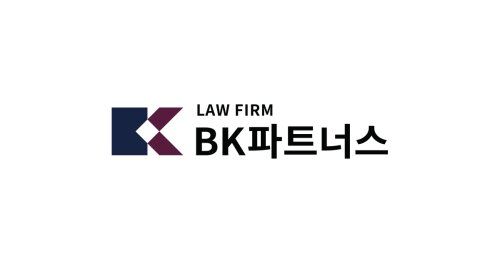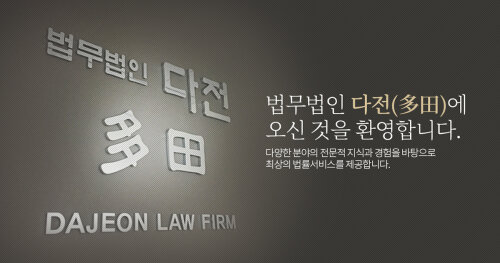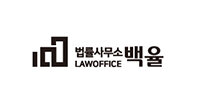Best Father's Rights Lawyers in South Korea
Share your needs with us, get contacted by law firms.
Free. Takes 2 min.
Free Guide to Hiring a Family Lawyer
Or refine your search by selecting a city:
List of the best lawyers in South Korea
About Father's Rights Law in South Korea
Father's rights in South Korea are primarily governed by the Family Law, which is a part of the Civil Act. The law emphasizes the welfare of the child and tends to focus on joint responsibilities and rights of parents. Traditionally, the legal framework has favored maternal custody in divorce cases; however, fathers are increasingly becoming aware and assertive of their rights concerning custody, visitation, and child support. Understanding the nuances of these rights and how they are applied can significantly impact a father's relationship with their child post-divorce or separation.
Why You May Need a Lawyer
There are several situations where fathers might require legal assistance to ensure their rights are protected. Some of these include:
- Divorce Proceedings: During divorce, issues such as child custody, visitation rights, and support are determined. Having a lawyer ensures that a father's rights and interests are represented fairly.
- Enforcement of Visitation Rights: If a father is being wrongfully denied access to their child, legal intervention may be necessary to enforce visitation agreements.
- Modification of Custody Arrangements: Circumstances change, and a father may need to seek legal help to modify existing custody or visitation arrangements to better suit the needs of the child and family.
- Parental Alienation Issues: If a father suspects parental alienation is occurring, a lawyer can help in addressing these issues legally.
- Paternity Issues: Establishing paternity can grant legal rights and responsibilities, and this often requires legal documentation and representation.
Local Laws Overview
In South Korea, family law issues, including father's rights, are primarily handled under the Civil Act and Family Litigation Act. Key aspects include:
- Custody and Visitation: Custody is typically awarded based on the best interests of the child. Courts have started giving more consideration to fathers, especially in cases where they can prove their capacity to provide a loving, stable environment.
- Child Support: Both parents are obligated to financially support their children. Child support is typically calculated based on the income of both parents and the needs of the child.
- Parental Authority: Korean law traditionally granted automatic parental authority to the mother, particularly in the case of younger children. However, fathers can assert their rights to shared parental authority.
Frequently Asked Questions
1. What rights do fathers have in custody disputes in South Korea?
Fathers can assert their rights to custody, focusing on the child's best interests. Courts may consider factors such as the father's relationship with the child, ability to provide a stable environment, and willingness to cooperate with the mother for the child's welfare.
2. How can I establish paternity legally in South Korea?
Paternity can be established voluntarily by both parents acknowledging the child or through a court order after a DNA test. Legal acknowledgment provides the father with rights and responsibilities related to the child.
3. Can a father gain sole custody of his child in South Korea?
While it's less common for fathers to receive sole custody, it's possible if it's proven that it serves the best interest of the child, especially in scenarios involving neglect or abuse by the mother.
4. How are child support amounts determined?
The court typically considers both parents' income, the child's needs, and the standard of living the child would have enjoyed if parents were together, when determining child support.
5. What actions can I take if my visitation rights are being violated?
If a father is denied court-ordered visitation, he may file a petition for enforcement in family court to ensure compliance by the other parent.
6. Is joint custody an option in South Korea?
Yes, joint custody can be awarded if the courts believe it's in the child's best interest and both parents can cooperate effectively.
7. What steps should I take to modify a custody agreement?
If circumstances change significantly, a father can file a petition to modify custody arrangements in family court, providing evidence that the change is in the child's best interest.
8. How does the law protect fathers against parental alienation?
South Korean courts recognize parental alienation and may modify custody arrangements or limit parental authority of the alienating parent to protect the child's welfare.
9. What legal stance does South Korea take on unmarried fathers?
Unmarried fathers can have parental rights if they legally acknowledge paternity, giving them rights and responsibilities similar to those of married fathers.
10. Are legal proceedings conducted in English?
Proceedings are typically in Korean, but courts often permit official interpreters. Engaging a bilingual lawyer can facilitate communication and understanding.
Additional Resources
If you're seeking more information on father's rights in South Korea, consider reaching out to the following resources:
- Korean Bar Association: Provides guidance and resources for legal representation.
- Family Court of Korea: Offers detailed information about family law proceedings.
- Korean Legal Aid Corporation: Provides legal assistance, especially useful for those who may not afford private counsel.
- International Child Support and Custody Centers: Can offer support for cross-national custody cases.
Next Steps
If you believe you need legal assistance regarding your rights as a father in South Korea, consider the following steps:
- Consult a Lawyer: Engage with a family law attorney who has a solid background in handling father's rights issues.
- Gather Evidence: Collect documentation and evidence that can support your legal position, such as communication records, financial documents, and any court orders.
- Stay Informed: Understand your legal rights and responsibilities through reliable sources and continuous consultation with your legal advisor.
- Prioritize Mediation: South Korean courts often encourage mediation; cooperating with the other parent via mediation can sometimes resolve issues without prolonged litigation.
Lawzana helps you find the best lawyers and law firms in South Korea through a curated and pre-screened list of qualified legal professionals. Our platform offers rankings and detailed profiles of attorneys and law firms, allowing you to compare based on practice areas, including Father's Rights, experience, and client feedback.
Each profile includes a description of the firm's areas of practice, client reviews, team members and partners, year of establishment, spoken languages, office locations, contact information, social media presence, and any published articles or resources. Most firms on our platform speak English and are experienced in both local and international legal matters.
Get a quote from top-rated law firms in South Korea — quickly, securely, and without unnecessary hassle.
Disclaimer:
The information provided on this page is for general informational purposes only and does not constitute legal advice. While we strive to ensure the accuracy and relevance of the content, legal information may change over time, and interpretations of the law can vary. You should always consult with a qualified legal professional for advice specific to your situation.
We disclaim all liability for actions taken or not taken based on the content of this page. If you believe any information is incorrect or outdated, please contact us, and we will review and update it where appropriate.
Browse father's rights law firms by city in South Korea
Refine your search by selecting a city.

















